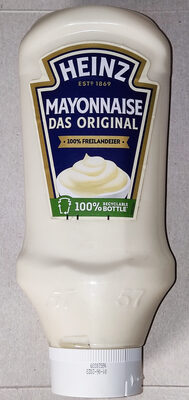
Barcode: 8715700209128
Mayonnaise
HALAL
📝 Reason: The product is considered Halal as it does not contain any Haram ingredients or E-codes. The doubtful status of Branntweinessig does not affect the overall Halal status as it is derived from alcohol but processed in a way that may render it permissible. Islamic sources emphasize the importance of avoiding Haram substances and ensuring cleanliness and purity in consumption.
📄 Certificates: None
Ingredients:
Details
Understanding the Halal Status of Mayonnaise
If you’re curious about the Halal certification of Mayonnaise, you’re in the right place! This popular condiment is loved by many, but its suitability for Muslim consumers depends on understanding its ingredients and their sources.
Halal Status Summary
Mayonnaise is generally considered Halal as it does not contain Haram (forbidden) ingredients. The only ingredient that might raise questions is Branntweinessig (distilled vinegar), which is derived from alcohol. However, due to its processing, it can still be deemed permissible within Islamic dietary laws.
Ingredients Breakdown
Let’s dive deeper into the specific ingredients of Mayonnaise and their Halal status:
- Rapsöl (Rapeseed Oil): This vegetable oil is generally regarded as Halal. It is derived from the seeds of the rapeseed plant and does not require any special treatment to be Halal.
- Wasser (Water): Water is universally Halal and poses no issues concerning permissibility.
- pasteurisiertes Eigelb (Pasteurized Egg Yolk): This ingredient is typically considered Halal, provided it has not been contaminated with Haram substances.
- Branntweinessig (Distilled Vinegar): The Halal status of this ingredient can be doubtful as it originates from alcohol. However, the distillation process can make it permissible, and many scholars accept it in light of its widespread use in food products.
- Zucker (Sugar): Sugar is generally recognized as Halal and is acceptable in any dietary context.
- Stärke (Starch): Starch is typically derived from plants and is Halal, contributing to the thickening properties of Mayonnaise.
- Salz (Salt): Salt is universally Halal and essential in food preservation and flavoring.
- Senfsamen (Mustard Seeds): These seeds are generally Halal and are often used to enhance the flavor profile of condiments.
- Gewürze (Spices): Most spices are Halal unless they have been contaminated with Haram substance during processing.
- Calcium-Dinatrium-EDTA (E385): This antioxidant is recognized as Halal, commonly used to preserve the freshness of the product.
Conclusion
In conclusion, Mayonnaise can be considered Halal largely due to its ingredients, which are permissible under Islamic dietary laws. The concerns regarding Branntweinessig are mitigated by its processing method. Furthermore, it is essential for consumers to remain vigilant about the brands they select and their respective certifications.
As always, it is advisable to check for Halal certifications from reliable organizations to ensure the product’s legitimacy. For those who prioritize Halal eating, this mayonnaise can be a flavorful and guilt-free choice!

